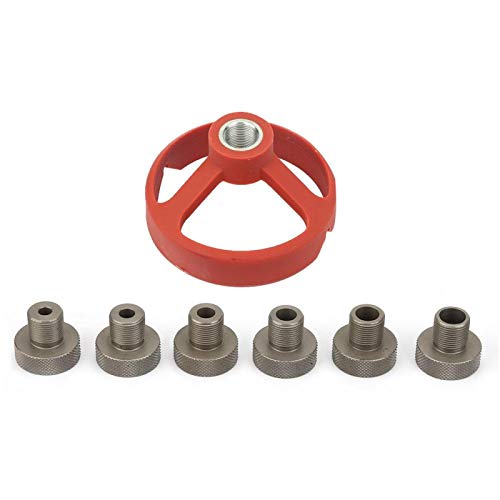http://www.al.com/news/huntsville/index.ssf/2018/04/new_blood_test_could_lead_to_t.html
New blood test could lead to the end of colonoscopies
Updated 11:10 AM; Posted 10:59 AM

The HudsonAlpha Institute for Biotechnology in Huntsville has led a new study that could replace colon exams with a blood test to measure colon cancer risk. (File photo)
By Lee Roop
[email protected]
It can be a lifesaving test, yet more than a third of patients recommended for it fail to follow up. But the test called a colonoscopy may become history thanks to research by Alabama scientists.
Researchers at Huntsville's HudsonAlpha Institute for Biotechnology announced today they've found measurable indicators in blood plasma that could identify patients with colon polyps. Left unremoved, polyps can develop into colon cancer, one of most common and potentially deadliest forms of cancer.
Today, the accepted test for polyps is a colonoscopy, an expensive procedure where a specialist examines the colon with a camera. Cleaning out the bowels at home the night before the procedure is also one of the lesser pleasures of modern medicine. But colonoscopies that lead to removed polyps do save lives.
Alabama doctor opens up about cancer and colonoscopy
Dr. Herbert Chen, the head of surgery at UAB, turned 50 and became the public face of the hospital's campaign to screen for colon cancer.
"A blood test that fulfills the role currently played by colonoscopies would have major positive impacts," Brian Roberts, a senior scientist in the Myers Lab at HudsonAlpha and lead study author, said today. "A lot of people joke about how they'd love to avoid the discomfort of colonoscopies," he said, "but there's a serious issue with people not actually getting screened."
According to the American Cancer Society, only about 65 percent of adults 50 or older get colonoscopies when recommended by their doctors.
The study that found the polyps indicator was published online last week in Clinical Cancer Research, a publication of the American Association for Cancer Research.
HudsonAlpha researchers teamed with the University of Alabama in Birmingham School of Medicine to study a diverse group of men and women mostly over 50 years old. About 30 percent were African American, indicating the test works as well for men and women of African and European descent.
In the test, the researchers studied blood plasma collected at UAB. The team focused on RNA found in the plasma and found that differences in some RNA molecules identified patients with colon polyps that could turn cancerous.
'More work to do'
"There's a lot more work to do before patients might see a test like this at the clinic, but we're optimistic that with more research and after clinical trials, eventually, we will see blood-based screening for colon polyps and colon cancer itself offered routinely to patients," Dr. Rick Myers said. Myers is president and science director at HudsonAlpha as well as a researcher.
In addition to Roberts and Myers, HudsonAlpha researchers who worked on the study include Andrew Hardigan, Dianna Moore, Ryne Ramaker, Angela Jones, and Dr. Greg Cooper.
ADVERTISING
The researchers collaborated with Dr. Robert Kimberly and Meredith Fitz-Gerald at the Center for Clinical and Translational Science at UAB; and Dr. C. Mel Wilcox, director of the Gastroenterology and Hepatology Division in the Department of Medicine at UAB.
The research was funded by the State of Alabama, the Center for Clinical and Translational Science NIH grant at UAB, and an anonymous private donor.
New blood test could lead to the end of colonoscopies
Updated 11:10 AM; Posted 10:59 AM

The HudsonAlpha Institute for Biotechnology in Huntsville has led a new study that could replace colon exams with a blood test to measure colon cancer risk. (File photo)
By Lee Roop
[email protected]
It can be a lifesaving test, yet more than a third of patients recommended for it fail to follow up. But the test called a colonoscopy may become history thanks to research by Alabama scientists.
Researchers at Huntsville's HudsonAlpha Institute for Biotechnology announced today they've found measurable indicators in blood plasma that could identify patients with colon polyps. Left unremoved, polyps can develop into colon cancer, one of most common and potentially deadliest forms of cancer.
Today, the accepted test for polyps is a colonoscopy, an expensive procedure where a specialist examines the colon with a camera. Cleaning out the bowels at home the night before the procedure is also one of the lesser pleasures of modern medicine. But colonoscopies that lead to removed polyps do save lives.
Alabama doctor opens up about cancer and colonoscopy
Dr. Herbert Chen, the head of surgery at UAB, turned 50 and became the public face of the hospital's campaign to screen for colon cancer.
"A blood test that fulfills the role currently played by colonoscopies would have major positive impacts," Brian Roberts, a senior scientist in the Myers Lab at HudsonAlpha and lead study author, said today. "A lot of people joke about how they'd love to avoid the discomfort of colonoscopies," he said, "but there's a serious issue with people not actually getting screened."
According to the American Cancer Society, only about 65 percent of adults 50 or older get colonoscopies when recommended by their doctors.
The study that found the polyps indicator was published online last week in Clinical Cancer Research, a publication of the American Association for Cancer Research.
HudsonAlpha researchers teamed with the University of Alabama in Birmingham School of Medicine to study a diverse group of men and women mostly over 50 years old. About 30 percent were African American, indicating the test works as well for men and women of African and European descent.
In the test, the researchers studied blood plasma collected at UAB. The team focused on RNA found in the plasma and found that differences in some RNA molecules identified patients with colon polyps that could turn cancerous.
'More work to do'
"There's a lot more work to do before patients might see a test like this at the clinic, but we're optimistic that with more research and after clinical trials, eventually, we will see blood-based screening for colon polyps and colon cancer itself offered routinely to patients," Dr. Rick Myers said. Myers is president and science director at HudsonAlpha as well as a researcher.
In addition to Roberts and Myers, HudsonAlpha researchers who worked on the study include Andrew Hardigan, Dianna Moore, Ryne Ramaker, Angela Jones, and Dr. Greg Cooper.
ADVERTISING
The researchers collaborated with Dr. Robert Kimberly and Meredith Fitz-Gerald at the Center for Clinical and Translational Science at UAB; and Dr. C. Mel Wilcox, director of the Gastroenterology and Hepatology Division in the Department of Medicine at UAB.
The research was funded by the State of Alabama, the Center for Clinical and Translational Science NIH grant at UAB, and an anonymous private donor.
Last edited:











































